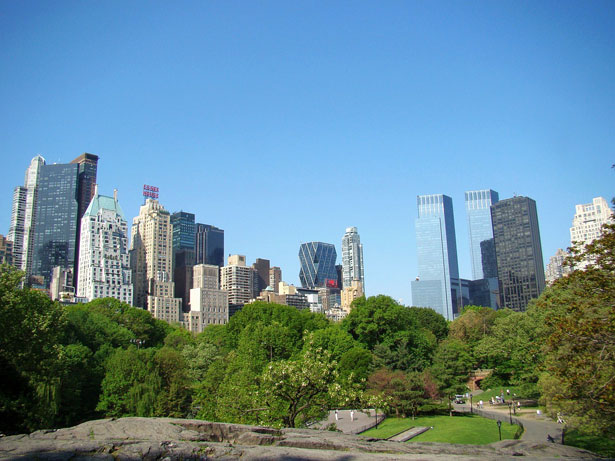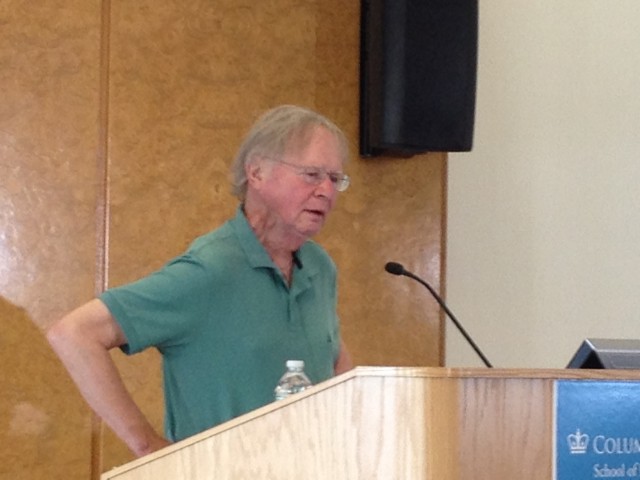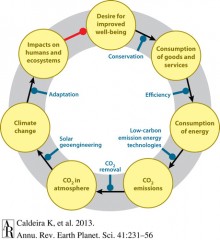
Wallace Broecker hates long introductions. For such an accomplished geophysicist and climate scientist, this is a legitimate concern. As one of the first climate scientists to model global warming trends since the founding of the current field in the 1970s, his record of discovery can take a while to recount.
On June 28, Broecker spoke about “Dealing with the CO2 Crisis” as a part of Hertog Global Strategy Initiative‘s summer lecture series at Columbia University. Broecker is a science veteran who has realized that despite clear evidence of CO2’s role in anthropocentric climate change, the human response to the CO2 crisis will likely to be reactive rather than preventative.

In his recent lecture, Broecker outlines carbon capture as the most promising option in a rather “bleak outlook” on our collective climate future. He realizes that this proposed solution will take some convincing, especially given that the estimated costs of removing one ton of CO2 from the atmosphere ranges from $100-$1000, though the carbon capture option will still be less costly than replacing existing carbon-emitting infrastructure and services.
Klaus Lackner, Director of the Lenfest Center for Sustainable Energy at Columbia’s Earth Institute, leads the center’s efforts in innovative carbon capture and sequestration strategies, and has developed an ‘artificial tree’ that, if deployed globally in a hypothetical large scale program, would help recover vast quantities of CO2. In our previous interview with Klaus Lackner, he outlines how carbon capture would work using a tanker truck analogy:
The Hertog Global Strategy Initiative summer lecture series takes place every Thursday evening between May 30-August 8* from 6:00-7:30 p.m. Note: There will be no lecture on Thursday, July 4 and Thursday, July 25. Please visit globalstrategy.columbia.edu/lectureseries for the full speaker list.
Additional reading and various views about carbon capture:
Wallace Broecker has had carbon removal on his mind for quite a while, as we can see from this earlier compelling interview from 2005 (transcript).
The economist Graciela Chichilnisky at Columbia University is an optimist, and is a partner in an air capture project called Global Thermostat.

Ken Caldeira (Stanford) and fellow researchers have written a sober, thorough and valuable review of the entire field of geoengineering. They cite the Royal Society report on geoengineering (2009) as a source, and that is also an excellent introduction to this very important field.